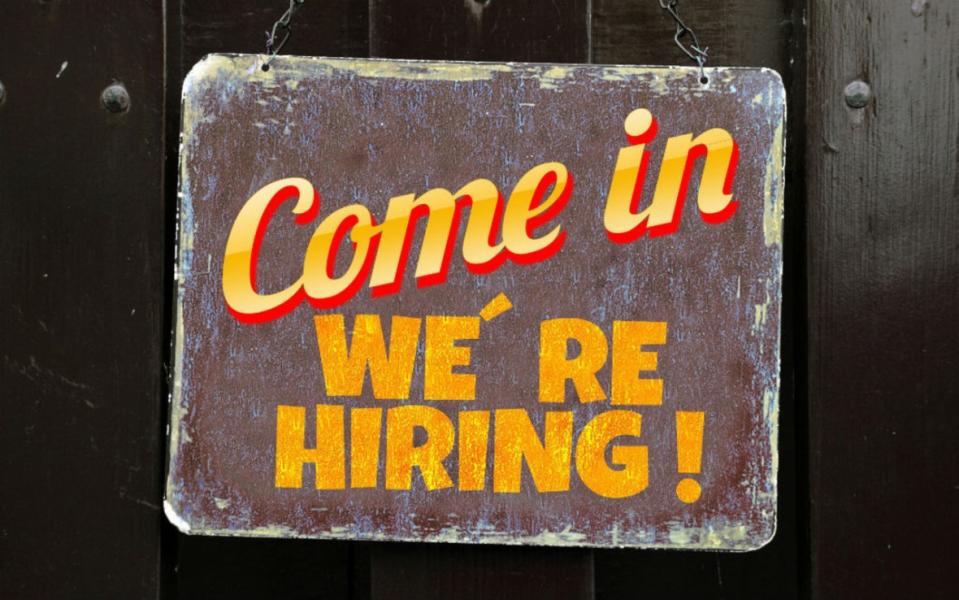Start-ups and spin-outs: The secret ingredients to growth

In the US, start-ups create 3m jobs in their first year and employ 2.6m workers five years later. Britain is lagging way behind when it comes to innovation and entrepreneurship, says Paul Ormerod
Going into the election tomorrow, the two main parties agree on a crucial issue. Economic growth is needed to achieve their respective economic and social aspirations.
Despite widespread perceptions to the contrary, in the decade of the 2010s the UK’s growth record was quite reasonable. The average annual rate of GDP growth was two per cent, even though many liberal commentators persist in believing that “austerity” prevented growth from happening.
This compares to the average over the 30-odd years from after the oil price shock of the mid-1970s to immediately before the financial crisis in 2007 of 2.3 per cent.
This does represent a slowdown, but a very modest one.
Suppose a magic wand could be waved. Keir Starmer and Rachel Reeves are given a choice. They can settle with certainty for two per cent annual growth 2024-2029 or take a chance and see if they can do better. It would be very tempting to accept the offer from the wizard. Two per cent growth would go quite a long way to financing their programmes.
One potential way of doing better is not getting much attention in policy pronouncements, even though there is an impressive body of research to support it.
A lot of growth is generated by young start-up companies which move into the phase of scaling-up – that is becoming much bigger.
At one stage, the current big tech companies which dominate the economic landscape were themselves tiny. In a short space of time, well within the living memory of most, they became giants.
Of course, not every successful new company gets to operate at this scale. But start-up companies which succeed in growing are vital to the strength of the economy.
A heavily cited academic analysis, for example, of US Census Bureau data in the Longitudinal Business Database showed that in a typical year new firms created more than 100 per cent of all the net new jobs in the United States. In other words, the older companies as a whole in net terms saw their employment shrink. The expansion came from new ones.
This finding has been reinforced by the recently published results of a project using data based on the underlying US Census Bureau Business Register, known as the Comprehensive Start-up Panel (CSP).
The study shows show how strikingly important entrepreneurship is for the economy.
On average, each annual cohort of start-ups creates a total of 3m jobs in the first year and employs a total of 2.6m workers five years later. The authors calculate that without the contribution of start-ups, job creation by all other businesses would be negative in most years.
The Unites States has a successful ecology of innovation and entrepreneurship. But the UK and the EU lag behind.
A familiar problem is that lots of good ideas are generated in the STEM departments of our strong universities. But very few of them are commercialised into spinouts.
One of the problems is the short-sighted greed of many of our universities. They will often demand 25 to 30 per cent of the initial equity in a spinout company simply for the permission for the academics to use their own research. But less can be more. Cambridge gives its staff a much greater incentive by asking for only 10 per cent and generates more as a result.
But whether it is forming a spinout in the first place, then employing a few people in a start-up before expanding into a scale up, incentives play a key role. In particular, there is a negative impact of tax on innovation.
Tax in general may have to rise regardless of who wins. But taxing entrepreneurship and innovation is actually very costly. It stifles growth.
Paul Ormerod is an economist at Volterra Partners LLP, an Honorary Professor at the Alliance Business School at the University of Manchester and author of Against the Grain: Insights of an Economic Contrarian, published by the IEA in conjunction with City A.M.

 Yahoo Finance
Yahoo Finance 